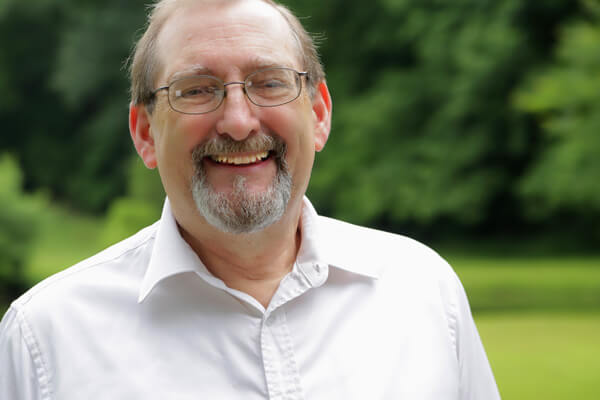
By: Bill Wattenbarger, Ph.D.
In Christ-centered counseling, clients often reveal a kind of embarrassment or shame that their faith does not translate into better coping, communication, self-control, and perseverance. They ask, “why is my life such a mess? As a Christian, I should do better.”
Sometimes the answer is as simple as just being out of practice. Christian disciplines require practice just as do vocation, athletics, music, etc. Habits and skills are best learned with repetition over time and they atrophy if not exercised.
One such fundamental discipline is Bible reading. Reading is a rational process and us humans like to think that knowledge solves all problems. But faith in knowledge is a great fallacy.
Reading. Reading can be little more than decoding the words. While this is the critical first step, decoding alone resembles a grammar school recitation, lacking meaning.
Memorization (familiarization). Transferring the words from page to memory has advantages but little is gained if the words move without increased understanding.
Study (exposition). Bible study adds understanding. Teaching (study guides, commentaries, discussion groups, comparing translations) can enrich understanding. Insights can now be shared, views discussed, doctrines developed and disputes engaged.
Application. A traditional sermon starts with the reading, moves through familiarization to exposition and ends with application. The application is an intellectual process too. Words are used to express ways to make understanding relevant. So the new words become exhortations. One problem is that the preacher does most of the work. In the current digital world, one can do much of this on his own, but the purpose remains to understand and apply the Word to life.
However, life is experiential. Feelings and desires often prevail over reason when making choices. One may know better and still misbehave. One knows what he should do but doesn’t and what he shouldn’t do but does. This is because feelings and desires can have unknown influence for unknown reasons growing out of unknown experiences. One often does not know why he behaves as he does.
Scripture must inform choice in more effective ways in order to bear good fruit. Words must go beyond the rational domain (thinking) and find their validation in the emotional (feeling) and motivational (desire) centers of the spirit. The challenge is to translate the inspired Word into personal inspiration. In this, Bible “study” often fails the disciple.
Meditation. At last, something to transcend thinking and inform the heart, soul, and strength. Meditation is prayer – a conversation with the Lord – structured around the Word (Psalms 19, 49, 104, 119). Such meditation on the Word is not a kind of eastern mysticism. It is a full-out encounter with the Lord, self, others, and the world. It brings humility, tears, conviction, repentance, rejoicing, renewal and refreshing, eyes to see and ears to hear, desire to serve, glorification of God in word and deed, and so much more. The individual must withdraw daily and experience the Spirit of God directly. One must come to experience themselves in the light of the revelation – as a sinner, redeemed, chosen and empowered to God’s purpose. One can come to experience others as the objects of God’s love, to be forgiven, received, accepted and nurtured.
The first Disciples were powerful in launching the Kingdom into the world, not because they had their Bibles, which they didn’t, but because they experienced Jesus! He was a person complete with a personality. They knew His profound teaching, His indefatigable ministry, His endless compassion, His piercing insight, His healing and deliverance, and His sharp wits. Above all, they knew Him risen! They left a record for the ages, the Bible, the written Word, encoding His marvelous truth for us to read, memorize, study and devour and then to be consumed by it. It is in meditation on this written Word that His experience springs into Life.
Surely, life will retain its troubles and challenges but God’s Word, alive at the center of one’s experience, will transform these challenges into opportunities to exhibit God’s redeeming grace through heart, soul, mind, and strength.
So practice! Choose to take hold of the written Word and drag it into the prayer closet. Don’t let go until it spills out its surprises, answers, directions, and desires. Be filled by God’s Spirit and know His fruit which goes beyond understanding. Fall into Love with the Living Word and hunger for the written Word that reveals Him. Thank God and praise the Lord! Then return to the world and live out what has been poured in.
Then repeat.
Bill Wattenbarger joined the Joy House team in May of 2015 to work in the Counseling Center. He provides biblical, Christian and pastoral counseling services to those who are hurting, confused or overwhelmed. He earned a Master’s Degree from the University of Florida and a Doctoral degree in Counseling from the University of Georgia. The Joy House Counseling Center exists for the purpose of providing a faith-based option for residents of the Highway 575/ 515 corridor who seek guidance with life’s problems. We have locations in Pickens, Gilmer, and Cherokee Counties with fees based on income and ability to pay. We offer counseling to all ages, from 7 to 70, with professional services to a wide variety of individuals, families and their needs. Contact our Counseling Center via phone at 678-452-2037 for more information.